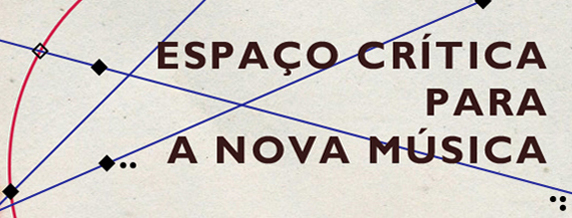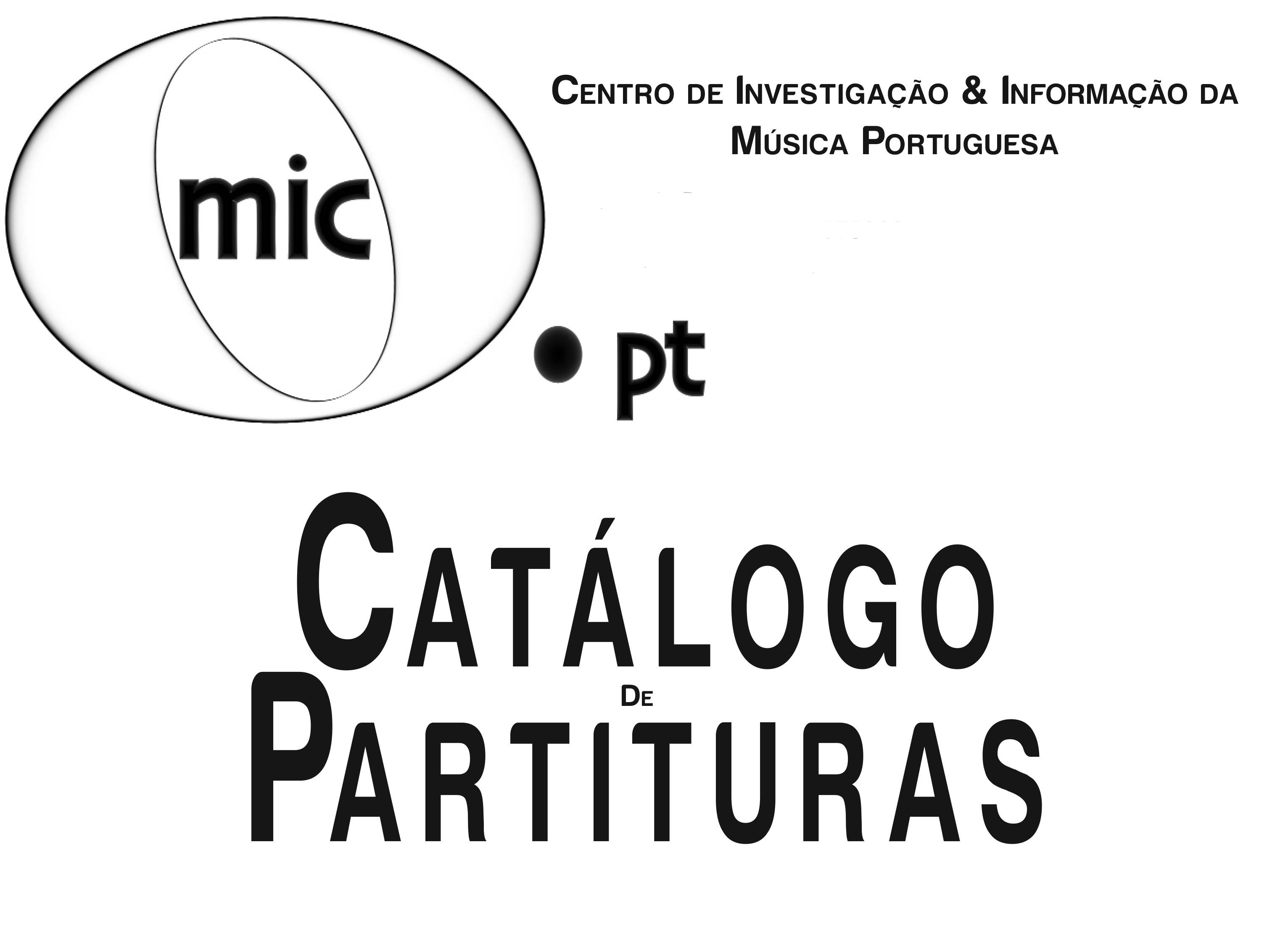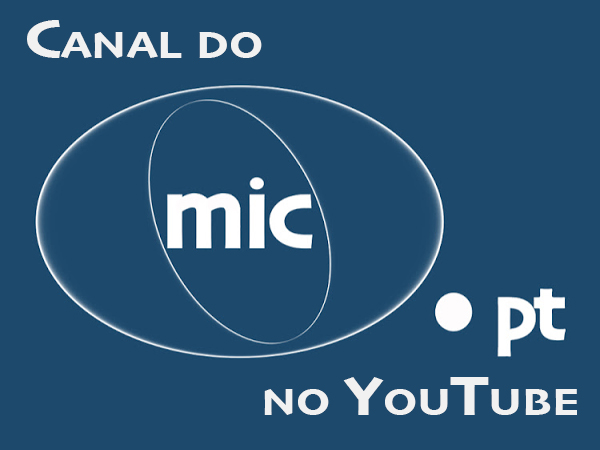Photo: © Teresa Santos
MIC.PT Interview – João Madureira
How did music begin for you and where do you identify your music roots?
João Madureira: In the beginning it was my grandmother playing the piano – classical and popular music, a bit of everything. In those moments I felt that music was a kind of thought, of a more profound thing – a more profound way of thinking. That was what I was feeling, while listening to my grandmother playing the piano. I could have been three or four years old in that time – it is the age, when one has the first memories of what is happening in life.
Another important moment for me came with the Carnation Revolution – April 25th, 1974. Some years later I decided to learn to play the guitar, as I was contaminated by the idea that music expressed what people felt towards life.
Which paths led you to composition?
JM: At the age of more or less 15 or 16 I made the decision to go to a music school, and in terms of subject, composition was my first choice. Composition was my first lover. Obviously, my parents were very much concerned with my future, particularly when I decided to continue studying composition at an academic level. They would have preferred to see me mastering the law, for example.
What were you listening to in that time?
JM: In that time I was listening to jazz, classical and also contemporary music, only that I didn’t understand well, what contemporary music really was. I didn’t understand it, but I was very curious to increase my knowledge and my perception of it.
The composer that fascinated me and influenced me considerably – besides Bach, obviously – was Bela Bartók. I was even being called João Bartók.
How do you remember the time spent abroad?
JM: It was extremely rich in experience. I got to know people from the world over – Dutch, Polish, Russians, Byelorussians, Greeks, Turks, Finish, Americans and Jewish. This was between 1997 and 2000. The important thing for me was that suddenly I was close to everything – the Czech Republic, Poland, the Netherlands… I was in the middle of everything and I could travel to Prague or Vienna in one instant.
I went to Cologne in 1997, already after my composition studies in Lisbon, to be taught by the German Composer York Höller. Before, in 1995, I had studied with Franco Donatoni. I got to know that he liked the same movement from Bartók’s 3rd String Quartet, as me. It is no coincidence that his friends used to call him Donatok. After returning to Portugal in 2000, I attended the composition classes with Ivan Fedele, every month in Strasbourg.
The Portuguese say a lot that they feel far from everything, that they are in the end of Europe…
JM: Nevertheless, we are next to Africa and this is the reason, why we shouldn’t feel this way. We belong to our own centre of the world. When I was in Germany the people there used to tell me about Africa. It hurt me that they were much more familiar with its culture, than we were. Even György Ligeti, who was Hungarian, had a lot more consciousness than normally we Portuguese have, when it comes to the richness of African culture and rhythms.
Are there any Non-European influences in your music?
JM: Yes there are, of African music, among others. However, presently I’m undergoing a change. The Africa that interests me no longer exists. It is the Africa of the Central African Republic, of the pigmies. I started using various elements of their music culture, but I am also very interested in the culture of other places on the Earth, such as India for example. For me it’s a more recent aspect.
Taking a closer look at your work, one instantly understands that you enjoy drawing from various sources, either non-western or from the past. For example in the "Missa de Pentecostes" you create a strong connection with music from the past. When did this idea of treating music as a plural universe come to you?
JM: My first compositions were more connected with serial and post-serial music. Then I passed through a fascination with the spectral school. I loved it – it was a kind of liberation from serialism. Nevertheless, when I mastered this technique and aesthetics I turned towards other sources, as I understood that I could reread them with contemporary eyes – I followed them and I’m moving towards this direction right now. These sources belong to a culturally multiple space that I really want to explore.
In my Missa de Pentecostes it isn’t only the past repertoire that is encompassed. Popular music is also present here with all its intensity, for example in the first and last movements. When it comes to the poetry and music, there is a quite obvious coexistence with popular art. It comes from an internally developing idea, that the diverse types of music, which we normally tend to classify and divide, have eventually a common base. Therefore, I always defend the multiplicity, which eventually is a supreme form of unity. It is interesting that even in serial music, which marks part of my work, there is an appeal towards the values ultimately common to every kind of music. This is what I want to emphasize today.
In this sense could you mention the works that contributed for this alteration?
JM: If I was to choose only one, forgetting about, for example, Stockhausen’s Stimmung and a large number of pieces by Franco Donatoni, one of the works that influenced me the most was without any doubt Sinfonia by Luciano Berio. He succeeds in uniting the diversity, which the piece embraces, giving us a new time scale, telling us that the past, the present and the future are categories in mutual contamination. Sinfonia constitutes a radical, philosophical change relatively to the first years of modernity. It shows us that music is much more united than we normally think it is, and that actually there is no illustrious divorce between the modernity from the beginning of the 20th century and the music preceding it. Berio also says that there is no split between the modernity and postmodernity. An important composer, whose work lets us understand the dimension of this idea, is Wolfgang Rihm. I could also mention John Adams. Where many see a schism I insist on seeing continuity. As far as the rest is concerned, I think that one should listen attentively to pop and rock groups such as the Radiohead, whose guitarist Jonny Greenwood studied music with Krzysztof Penderecki. This is the way to understand, how everything is much more connected than we normally think it is.
When it comes to my own pieces, there are various, in which I encompass gestures that by their nature integrate the classical and popular repertoire. For example Wanderung begins with a two-note gesture that doesn’t belong exclusively to any period. It simply symbolizes a wish to rise. The work’s title makes reference to wandering that I actually see in music and, more generally, in the surrounding culture. Another work Toc Toc Toc, which I composed for the Sond’Ar-te Electric Ensemble’s Music Theatre, was also quite significant as it reunites various types of language and the children story by Hélia Correia.
I think that one needs to decentralize not only music, but also the music object. To my mind, when we look into the past, we still remain quite addicted to Schönberg, perhaps because of the split that the history of music left us. However for example Bach doesn’t seem to have any centre. His music shows us that something apparently centred can eventually be multiple.
The ideas you express belong to a postmodern attitude. What, in your opinion, does it mean to be postmodern?
JM: In my opinion I’m post-postmodern. In other words, I don’t think that we need to know exactly where we are. I am certain that I have heart and that the world is plural. Nowadays, for me there is nothing orthodox in music, like a series for example. There is no predefined material and its choice is on its own a part of the creative process.
These conclusions made me understand music in a more emotional manner, as a multiple universe. Presently I am not interested in seeing how things are made, but rather in the political side that music has in a broader sense. For me it makes a lot of sense to say that music is philosophy and politics, which in its turn is an approach towards the world.
Presently, I prefer not to have any previously defined material. The one that I use is always in construction. When one is composing, one thinks that there is always only one solution, but perhaps it is hidden in the relation between various distinct things. Perhaps Bach’s music, so many times seen in terms of a derivation from a minimal element towards a coherent whole, doesn’t represent this attitude, but on the contrary, it constitutes the convergence of what’s diverse. Think of the preludes and fugues from the Well-Tempered Clavier and then again of the broader perspective, in which they are integrated in a major project within the courage to profane – the courage to perform – the religious whole. It is possible to understand his work and the set of his Passions as the expression of this attitude.
For me Bach is the encounter – the encounter between Italy and Germany, between Vivaldi and Buxtehude. I think that in the development of history, one should give more importance to these moments than to the moments of rupture. I would like to see my music from this perspective.
How is your compositional process developed? Do you begin with an embryo-idea or after having materialized the global form?
JM: In my opinion it isn’t necessarily an idea, but yes a political consciousness. The need to compose comes from the relation that I have with what surrounds me – and this can be anything: poetry, image or a set of notes, where I can read the relations between them.
From this starting point I develop the form, looking for the relation with something distinct, as for me the idea is almost always the connection between what is apparently diverse.
The use of text in music is important to you?
JM: Extremely important. I think that the text is a testimony defining who we are. In my music I always use texts by other authors, as I am surrounded by people who write extremely well. They are all excellent writers. In my opinion musicians should create a closer relation with literature, and in consequence, with politics, that is, with things that don’t belong to music. I think that it is important to have not an academic, but, yes, a political vision of music.
Your doctoral thesis emphasized the idea of this strong connection between music and politics?
JM:Yes it did. In my thesis I studied the case of Luciano Berio and more precisely of his opera La vera storia with libretto by Italo Calvino. As a result, I speak of music and its relation with philosophy, history, politics and ethics.
So what is politics for you?
JM:For me politics has to do with ethics – it is the man in the society, the man in the world, in his relation towards the other. This, I think, is the essence of politics.
How do you express these ideas musically?
JM: I try to use and integrate various references within an exercise of sheer freedom, as a composer in the world. It is like in the poem by Paul Valéry, The Conquest of Ubiquity – everything can be seen from different angles and various perspectives. We have lost the hierarchy, but we have recovered the freedom that since always has existed in numerous artists and composers. There has been a lot before Bach – Pergolesi and the whole Italy… and before Perotin, and before him, Boethius… I think that the heritage of a freedom of expression has been somewhat lost, partly in the way that music became “academized” in the 20th century – then it became closed to the world.
For me an impersonation of what you are saying is the music by Gesualdo, for example. His work is a kind of synthesis, not to mention the relation between the music and text, which he developed…
JM: He came to understand that the text on its own has music, and that in its turn music also has its own sense. It might not be accompanied by words, but there is always a hidden sense in it. And this sense is certainly more personal.
What do you think of the present situation in Portuguese Music?
JM: I think that presently there are various positive aspects, among which the MIC.PT is an example of excellence. Nevertheless, there is still a lot to do in order to overcome the various difficulties that still exist. For example, the Portuguese repertoire isn’t sufficiently performed. After one or two public performances, it is put into a drawer and awaits for new opportunities. And this is really a shame. Why doesn’t one organize more concerts with Portuguese music? I also think one should have more music, including contemporary music, at school. Generally, people need to have a lot more access to music – this is fundamental.
This is the access that I felt in Eastern Europe, where people have a strong consciousness regarding the importance of music in the civilizational process. And here we are again touching the political question of decentralizing the processes: Europe as well as some other consecrated centres of power should open beyond their boarders… Here in Portugal, we live dominated by Germany and France, for example. And we should open more to Eastern Europe and… to Africa with its over one billion population… Despite our history and the strong connections with Africa, we have very little knowledge on this continent. And this is also politics.
Can you identify any transversal aspect in Portuguese music?
JM: One is its peripheral existence and the advantages that it gives to us. The other one is poetry, as in Jorge Peixinho’s or Constança Capdeville’s work. The fact that we live in the periphery of Europe can give us more creative freedom and much more perspective. Perhaps here it is possible to breath better, than in other parts of the world.
What are your present and future projects?
JM:Nowadays there is unfortunately less activity than before, but still I have some projects in progress. Presently, I am working on two works – one is a piece for an 8-voice choir and the other one is a string quartet.
Apart from that I hope to defend my doctoral thesis this spring, and I would love to publish a monographic CD with my music for solo piano and voice with piano.
João Madureira, October 2016
Realization, edition e and transcription of the interview: Jakub Szczypa
English translation: Jakub Szczypa
© MIC.PT





